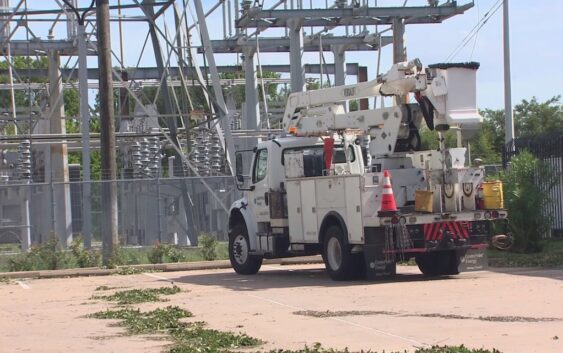- 'A little emotional': Hurricanes equipment manager got seconds in goal, memory to last a lifetime
- WMO retires three hurricane names after devastating 2024 season
- Beryl removed from future hurricane naming lists
- Hurricane names Helene, Milton and Beryl are now retired
- Hurricane Helene's name retired after deadly 2024 impact on US
Texas Senate committee looks at Centerpoint response to Hurricane Beryl

Since the storm, Centerpoint has apologized to customers and rolled out a $2 billion “resiliency plan” that includes things like using stronger power poles.
AUSTIN, Texas — In the wake of Hurricane Beryl, hundreds of thousands of people in the Houston area were without power for days. On Monday, state lawmakers in Austin looked at how to keep it from happening again.
A hearing at the Texas Capitol centered around energy company Centerpoint’s handling of the storm, looking at things like vegetation management before the storm and how it handled communications with customers after their power was out.
Beryl was a Category 1 hurricane when it made landfall in Texas on July 8. The storm took out a lot of Centerpoint’s infrastructure, knocking out power to more than 2 million people. The repairs weren’t fast.
Houston Mayor and former State Sen. John Whitmire testified at Monday’s hearing, saying Centerpoint needs to do a better job of preparing before future storms.
“How Houston goes is how the state of Texas will go – 30% of the state production, 25% of the state’s employment,” he said. “We have to do whatever is necessary to hold people accountable.”
Since the storm, Centerpoint has apologized to customers and rolled out a $2 billion “resiliency plan” that includes things like using stronger power poles and increasing its backup emergency generation capabilities. The Public Utility Commission of Texas is reviewing that plan.
Because we’re between regular legislative sessions, lawmakers can’t write up any potential reform bills to address this right now. But Monday’s hearing may spark some ideas for what they’ll file once the session starts in January.